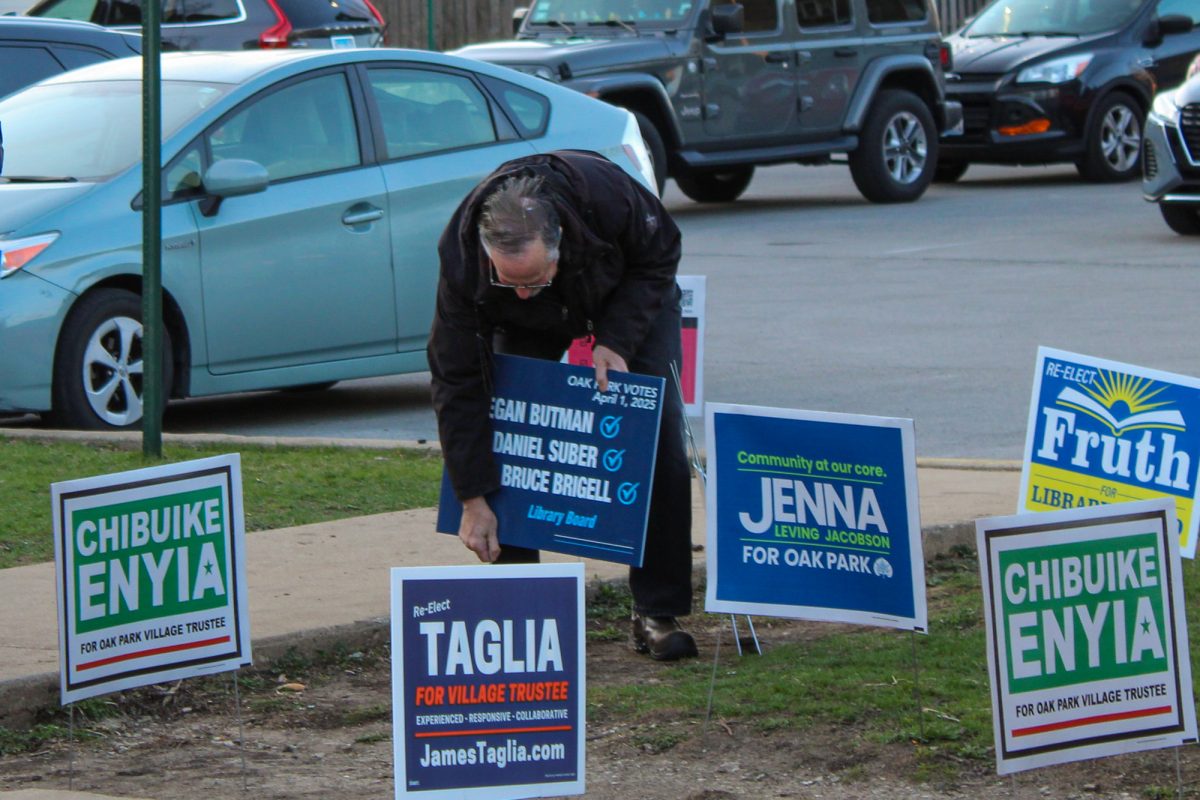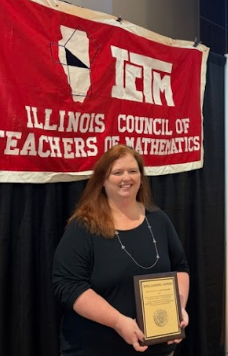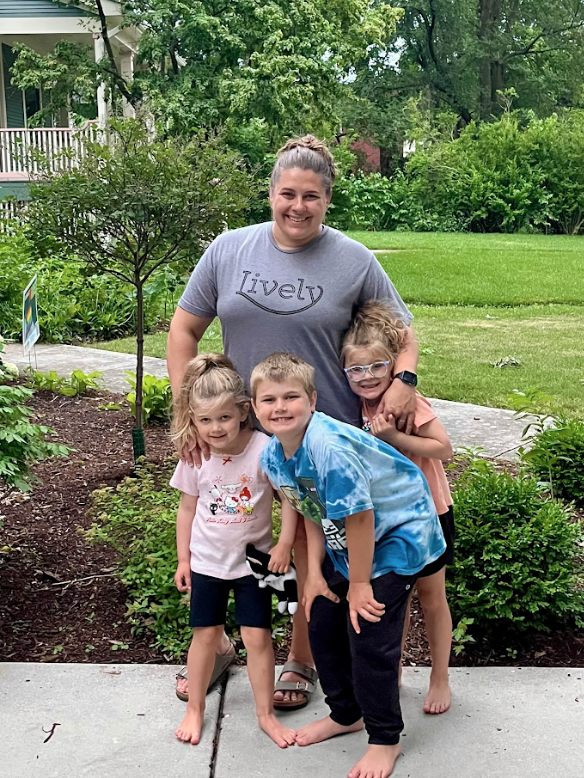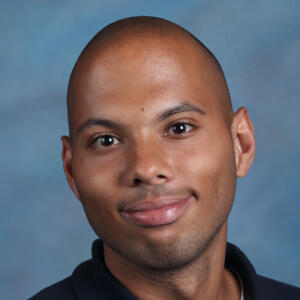The multitude of candidate signs in front yards over the last few months made it clear that residents felt particularly passionate about the local elections that took place on April 1. The race for Oak Park and River Forest High School District 200 School Board was among the most contentious races.
The results are in, and the winners of the four open seats are incumbents Audrey Williams-Lee and Fred Arkin, and new members Kathleen Odell and Josh Gertz. Two additional candidates, Nate Mellman and David Schaafsma, were defeated.
Schaafsma joined the race late as a write-in candidate, eventually forming a coalition with Williams-Lee, Arkin and Odell, in part to keep Mellman and Gertz off the board. Mellman and Gertz ran together as a slate, with a strong focus on school safety and academic tracking, which became top issues in the election.
The first three seats went easily to Odell, Williams-Lee and Arkin, with 9,691, 9,278 and 8,817 votes, respectively. The last seat was unaccounted for up until April 16, when the write-in votes and mail-in ballots were finalized. Gertz end-
ed up with 5,522 votes and Mellman had 5,361 votes, close behind his running mate. Schaafsma had 4,603 votes, the most votes for a write-in in all of Cook County this election.
“More than four thousand people did this thing of writing my name on a ballot. It’s not about me, it’s that people
are willing to go that extra mile to support what they believe in. That’s a cool thing,” said Schaafsma. “It’s politics…I don’t feel like a loser. I feel like I was part of a win.”
The coalition of Schaafsma, Williams-Lee, Arkin and Odell ran a campaign focused on inclusion, advocating for the detracked freshman curriculum, which places all students in honors-level classes in most subjects, and a holistic approach to discipline. “It’s always been about what I would call radical inclusion, where all students feel safe not just physically, but psychologically,” said Williams-Lee, ”I’d say that that value was very much the same amongst everyone that I was aligned with.”
Mellman and Gertz argued that the detracked curriculum fails to challenge advanced students or provide enough support for struggling students. Possibly the most polarizing issue between the groups was school safety. Mellman and Gertz focused on improving the school’s Behavior Education Plan, increasing preparedness for emergencies and increasing penalties for fighting, according to their campaign website, gertzmellmand200.com. “I think that there’s a lot of room for improvement in student safety,” said Gertz.
The group of four prioritized keeping kids in school and trying to find the root cause of disciplinary problems. “You can’t just look at it in isolation…understanding the behavioral cause so that you can stop that behavior from happening again versus being simply punitive, is really important,” said Williams-Lee. “It is important to remember that focusing on behavior does not eliminate consequences. The district’s policy is clear about prohibited conduct and appropriate disciplinary measures still apply.”
Odell agreed and noted that the message of inclusion seemed to resonate during the election. “I was pleased that my campaign messages were well-received by the voters,” she said. “I think that the OPRF voters signaled their confi-
dence in the faculty, their commitment to opening academic opportunities to more students, and their commitment to a holistic and restorative approach to safety and discipline.”
Despite joining the board without his running mate, Gertz is optimistic about bringing his new perspective to the group. “I’m going to ask questions and question the way we’ve been doing things and why we’re doing it,” said Gertz. “I think I’m ideologically perhaps somewhat different from most of the remaining six board members. So a lot of what I intend to do is to bring a moderate viewpoint to the board and a critical eye that I don’t think has been there in the past.”
In June 2024, Gertz and Mellman were among 100 signers of a letter to the state board of education and attorney general, accusing three OPRF teachers of antisemitic statements and acts. The school has said the teachers were appro-
priately expressing their political beliefs, and to date no action has been taken on the complaint.
The Middle East conflict also surfaced late in the campaign, according to an April 7 Chicago Tribune story. A young man apparently associated with the Democratic Socialists of America distributed an inflammatory flyer about Mellman outside the Oak Park Public Library, an action condemned by all candidates as offensive. Some supporters of Mellman and Gertz took issue with Schaafsma’s social media posts about Gaza, prompting a joint statement from the rest of his coalition defending him.
Despite Schaafsma’s loss, he plans to continue to pursue initiatives he supported. “Not winning this election doesn’t stop me from doing stuff…You don’t have to be an elected official. You can be on a subcommittee. You can show up for meetings,” said Schaafsma. “I really like the progressive political community in Oak Park, and I am really excited that so many progressive candidates won, and I just want to be part of that positive vibe that was established during the campaign.”
Progressive candidates did well overall in the election, with two of the three Village Board seats going to progressives Chibuike Enyia and Jenna Leving Jacobsen. The third seat went to Jim Taglia. The Village President role went to Vicki Scaman, who won with 7,056 votes against opponent Ravi Parakkat, a current village trustee, who had 4,175 votes. “I’m grateful,” said Scaman, “It feels like it was a community campaign, not really so much all about me.”
Scaman said she hopes to “demonstrate how a progressive community can succeed in whatever political climate sur- rounds us.” At the village level, she noted, “we already are hearing some of the concerns from our agency partners, nonprofits and governmental partners who are very concerned about some of the cuts at the federal level and how it is that we’re going to maintain the service levels that we have.”
For the D200 School Board, the main concern surrounds cuts to the Department of Education. “We’re going to be forced to be responsive to what’s happening on the national level, and in the things that are demanded out of us by the Department of Education,” said Arkin. “We receive between $2.5 and $3 million in federal aid, which goes directly to programs that affect our most vulnerable students. For example, free and reduced lunch and some of the special ed programming, so that concerns me greatly.”
Arkin added, “I look forward to serving on the new board and keeping things moving to keep Oak Park a very vital and vibrant educational institution.”
Although there are ideological differences between some of the board members, all share a goal of bettering the school. “I think it’s very healthy to have diverse views and priorities on the board,” said Odell. “My approach will be to keep the well-being of the students at the center of any decision.”
Williams-Lee said working for what’s best for the students “is the one thing that ties us all together.”
Gertz agreed. “You find compromise, you listen. We’re all professionals, and we all, at the end of the day, do have a common goal of making the school a wonderful place for students,” he said. “So you find a way to get that done.”







